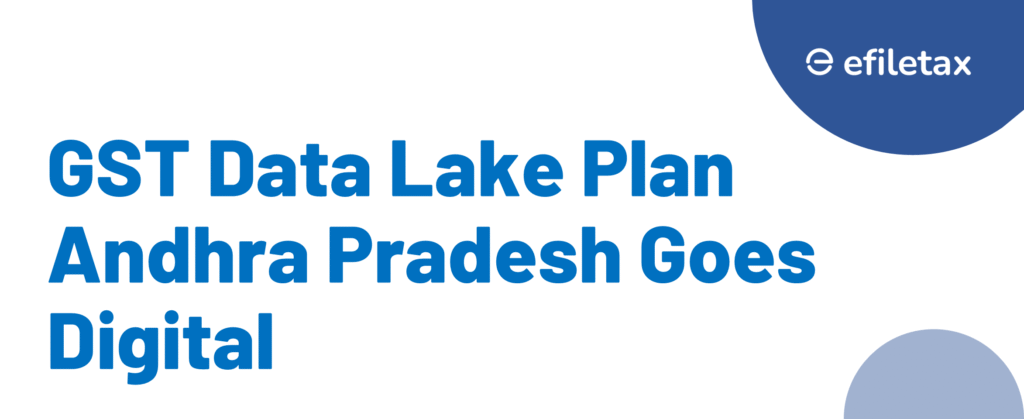
Intro Paragraph:
The Andhra Pradesh GST Data Lake initiative is set to revolutionise tax monitoring in the state. By merging commercial taxes data with GSTN, registration, and third-party sources, this digital system aims to spot fraud, boost compliance, and offer real-time insights to tax officers and policymakers.
What Is the Andhra Pradesh GST Data Lake?
The goal is to unify diverse tax and transaction-related data into a single, intelligent platform that detects anomalies, alerts officials, and curbs revenue leakage.
This move is aligned with the broader GST 2.0 data intelligence push initiated post-2020, and follows examples set by states like Karnataka and Maharashtra.
Key Features of the GST Data Lake
- Centralised Data Pool: Combines data from GSTN, Commercial Taxes Dept., transport, registration, and other state portals.
- AI-Powered Analytics: Uses machine learning to flag mismatches in invoices, under-reporting, fake ITC claims, etc.
- Dashboard Access: Field officers will get user-friendly dashboards for faster decision-making and audits.
- Third-Party Integration: Taps into databases from departments like Stamps and Registrations, Labour, and Transport.
Why Businesses Should Take This Seriously
1. High-Accuracy Matching
The system compares invoices, e-Way bills, GSTR-1 vs 3B filings, and third-party data to detect fake or inflated claims.
Expert View: “With automated risk profiling becoming the norm, even small mismatches can lead to scrutiny. Regular reconciliation is no longer optional,” says CA M. Krishna of Vijayawada.
2. Spotlight on High-Risk Sectors
Sectors like construction, scrap, pharma, and trading — known for high ITC misuse — will face enhanced checks.
3. No Escape via Shell Firms
Data lake will link PAN, Aadhaar, address, mobile, IPs, and geo-tags — making dummy registrations easier to track.
Legal Angle: Empowered by GST Law
The AP GST Data Lake leverages this legal backing.
Further, Rule 21 and Rule 86A allow cancellation of registration or ITC blocking based on risk parameters — which this system can auto-generate.
What Taxpayers in Andhra Pradesh Should Do
- File GSTR-1 and GSTR-3B accurately and on time
- Avoid circular trading or invoice layering schemes
- Keep books reconciled monthly with GSTR returns
- Validate transporter, vendor, and customer details
- Watch out for ITC red flags — blocked credits, HSN mismatches, or excess claims
How Andhra Pradesh Compares with Other States
| State | Data Intelligence Use | Key Tools |
|---|---|---|
| Karnataka | Advanced Audit Triggers | AI-based audit reports, GSTR anomaly alerts |
| Maharashtra | E-way bill integration | Vehicle tracking, warehouse matching |
| Andhra Pradesh | GST Data Lake (Underway) | Unified cross-departmental analytics |
Frequently Asked Questions (FAQ)
Q1. Is GST Data Lake only for large businesses?
No. Even proprietors or small firms could be flagged if mismatches arise.
Q2. Will this impact only GST returns?
No. It may lead to income tax scrutiny if material gaps are found.
Q3. Can taxpayers access the Data Lake?
Not directly. It is for internal government use, but effects will be visible via notices or system validations.
Summary
Andhra Pradesh GST Data Lake integrates GSTN, e-Way bill, and third-party data to detect tax evasion. Businesses must file returns accurately, avoid ITC fraud, and reconcile monthly to avoid system-generated red flags.
Conclusion:
The Andhra Pradesh GST Data Lake signals a shift toward data-driven compliance. If your business is registered in AP, this is the time to clean up books, verify vendors, and review past filings.
Need help with GST compliance or monthly reconciliation?
Talk to Efiletax Experts Now →